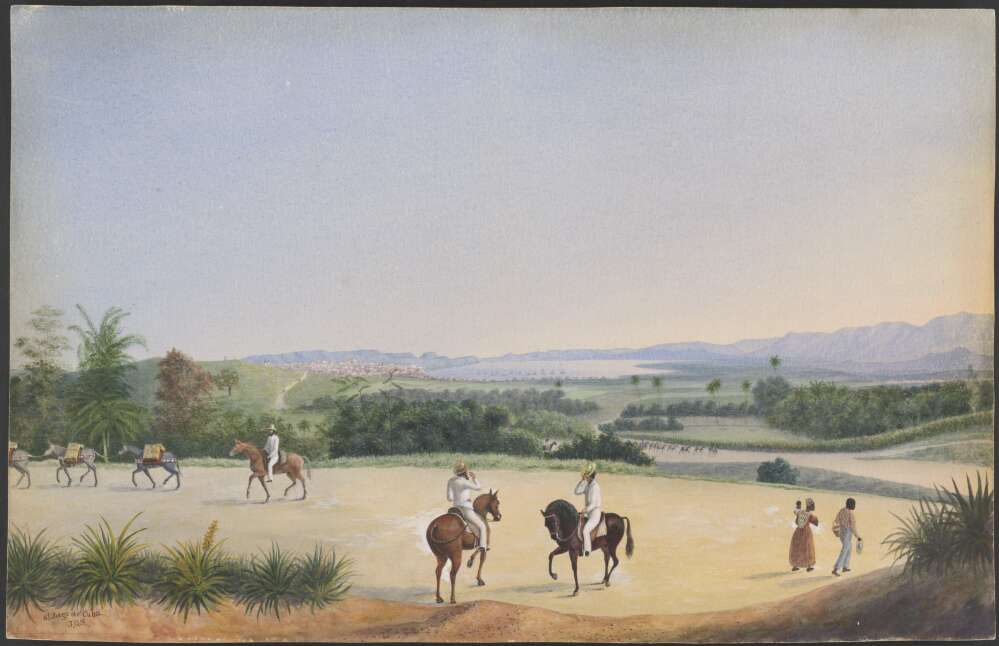|
La Lupe
Lupe Victoria Yolí Raymond (23 December 1936 – 29 February 1992), better known as La Lupe, was a Cuban singer of boleros, guarachas and Latin soul, known for her energetic, sometimes controversial performances. Following the release of her first album in 1961, La Lupe moved from Havana to New York and signed with Tico Records, which marked the beginning of a prolific and successful career in the 1960s and 1970s. She retired in the 1980s due to religious reasons. Life and career Early life and first recordings La Lupe was born in the barrio of San Pedrito in Santiago de Cuba. Her father was a worker at the local Bacardí distillery and a major influence on her early life. In 1954 she participated on a radio program which invited fans to sing imitations of their favorite stars. Lupe escaped from school to sing a bolero of Olga Guillot's, called "Miénteme" (Lie to Me), and won the competition. The family moved to Havana in 1955, where she was enrolled at the University of H ... [...More Info...] [...Related Items...] OR: [Wikipedia] [Google] [Baidu] |
Santiago De Cuba
Santiago de Cuba is the second-largest city in Cuba and the capital city of Santiago de Cuba Province. It lies in the southeastern area of the island, some southeast of the Cuban capital of Havana. The municipality extends over , and contains the communities of Antonio Maceo, Bravo, Castillo Duany, Daiquirí, El Caney, El Cobre, El Cristo, Guilera, Leyte Vidal, Moncada and Siboney. Historically Santiago de Cuba was the second-most important city on the island after Havana, and remains the second-largest. It is on a bay connected to the Caribbean Sea and an important sea port. In the 2012 population census, the city of Santiago de Cuba recorded a population of 431,272 people. History Santiago de Cuba was the fifth village founded by Spanish conquistador Diego Velázquez de Cuéllar on July 25, 1515. The settlement was destroyed by fire in 1516, and was immediately rebuilt. This was the starting point of the expeditions led by Juan de Grijalba and Hernán Cortés to the ... [...More Info...] [...Related Items...] OR: [Wikipedia] [Google] [Baidu] |
Bacardi
Bacardi Limited (; ) is one of the largest privately held, family-owned spirits companies in the world. Originally known for its Bacardi brand of white rum, it now has a portfolio of more than 200 brands and labels. Founded in Cuba in 1862 and family-owned for seven generations, Bacardi Limited employs more than 8,000 people with sales in approximately 170 countries. Bacardi Limited is the group of companies as a whole and includes Bacardi International Limited. Bacardi Limited is headquartered in Hamilton, Bermuda, and has a board of directors led by the original founder's great-great grandson, Facundo L. Bacardí, the chairman of the board. History Early history Facundo Bacardí Massó, a Spanish wine merchant, was born in Sitges, Catalonia, Spain, on October 16, 1814, and emigrated to Santiago, Cuba, in 1830. At the time, rum was cheaply made and not considered a refined drink, and rarely sold in upmarket taverns or purchased by the growing emerging middle class on the is ... [...More Info...] [...Related Items...] OR: [Wikipedia] [Google] [Baidu] |
Cabaret
Cabaret is a form of theatrical entertainment featuring music, song, dance, recitation, or drama. The performance venue might be a pub, a casino, a hotel, a restaurant, or a nightclub with a stage for performances. The audience, often dining or drinking, does not typically dance but usually sits at tables. Performances are usually introduced by a master of ceremonies or MC. The entertainment, as done by an ensemble of actors and according to its European origins, is often (but not always) oriented towards adult audiences and of a clearly underground nature. In the United States, striptease, burlesque, drag shows, or a solo vocalist with a pianist, as well as the venues which offer this entertainment, are often advertised as cabarets. Etymology The term originally came from Picard language or Walloon language words ''camberete'' or ''cambret'' for a small room (12th century). The first printed use of the word ''kaberet'' is found in a document from 1275 in Tournai. The term was ... [...More Info...] [...Related Items...] OR: [Wikipedia] [Google] [Baidu] |



